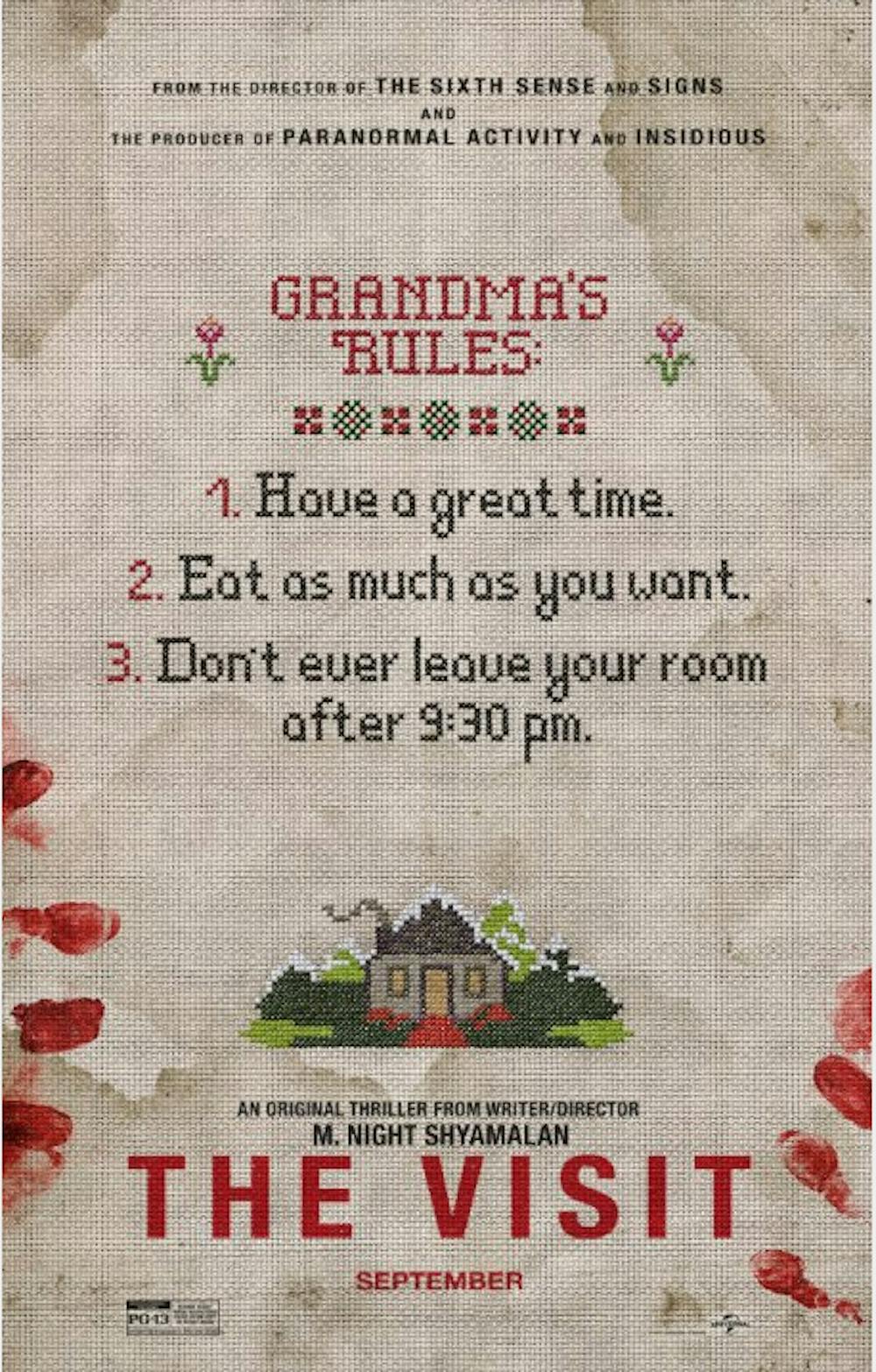Ben Richter is a sophomore telecommunications major and writes film reviews for the Daily News. His views do not necessarily agree with those of the newspaper. Write to Ben at brichter@bsu.edu.
Those who are familiar with the work of M. Night Shyamalan know his proclivity for subverting expectations, and The Visit is no exception. However, in The Visit, this subversion comes not as a rewarding twist at the end, but as a realization that there is no twist at the end. Whether this demonstrates a new self-awareness in the director or the final vestiges of creativity leaving him, I don't know. What I do know is that it doesn't work.
The Visit is the story of two siblings going to see their grandparents, whom they have never met. It stars Olivia DeJonge as Becca, the documentarian older sister, and Ed Oxenbould (who reminded me of Beans from Even Stevens, a likeness I couldn't overcome for the entirety of the film) as Tyler, Becca's rapping and germophobic younger brother. As the story continues, the pair begins to notice the increasingly odd behaviors of their grandparents, and gasps and laughs ensue.
The film is advertised as a comedy/horror and plays out on the screen as such. Like most comedies and horror films, it succumbs to cliches here and there. Moments of genuine and organic humor are overshadowed by tortuous bits. For example, Tyler performs two entire raps, and while it is nice to see an effort by writers to try to adopt a more youthful style, Tyler's dialogue at times feels like a Dad trying to embarrass his children. Becca's writing persona has its own set of problems. During the entire ninety-four minutes, if she isn't screaming, she's spouting some technical jargon regarding filmmaking that would make even a TCOM major gag. While I understand the importance of stressing the idea that she is a competent filmmaker, it was too much most of the time.
 |
|---|
The saving grace of this picture is the casting choice. Despite having to fight through uncomfortably forced scenes, the pair appears to have genuine chemistry. In fact, the best part of the film was a simple interview scene during which Tyler breaks down Becca's wall with a series of poignant questions. In those few frames we see a resounding vulnerability that is regrettably left largely unexplored in the film as a whole.
I was also impressed by its nimble tone changes from horror to comedy. The familiar elements of a horror movie were there—the silence before someone pops out and the spook music, but I also knew when I was supposed to laugh. To anyone who remembers the emotionally muddy Due Date (2010), it's often difficult to pinpoint exactly which parts are supposed to be funny and which are sad. The Visit suffers from none of these issues.
The found-footage style of cinematography both helps and hinders the film, though not at the same time. During the horror sequences, the film puts you right in the action as the victim holds the camera. However, during the lighter moments, the lack of editing options leaves many scenes going stale before the cut.
The Visit is several minutes of absurdity mixed with enough crazy old person to make you rethink visiting grandma this year. The few moments of self-awareness and genuine humor cannot make up for the unexplored personal stories and its unsatisfactory ending.





